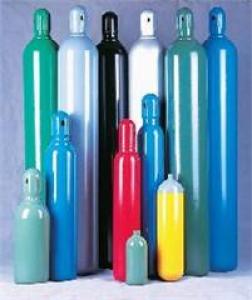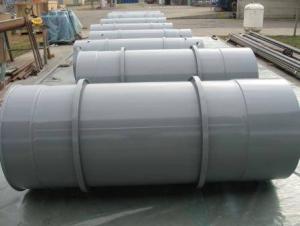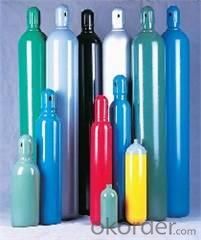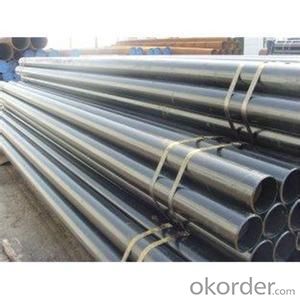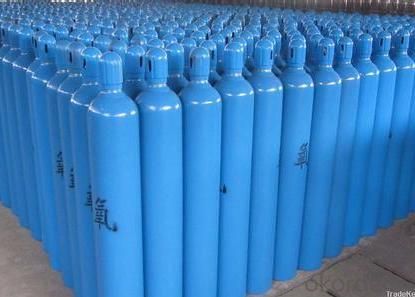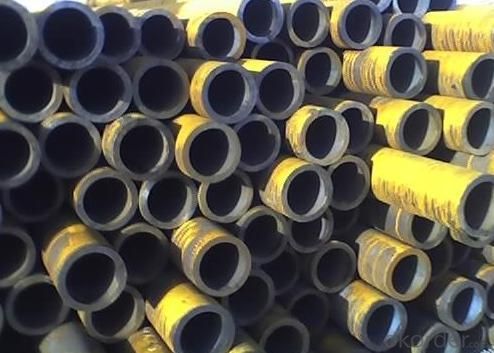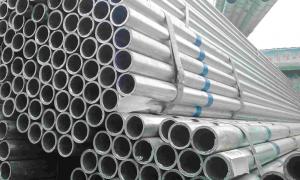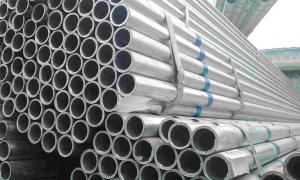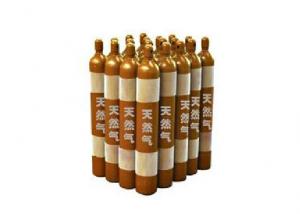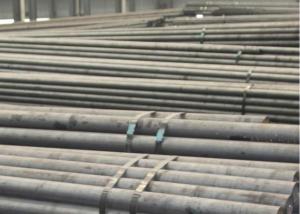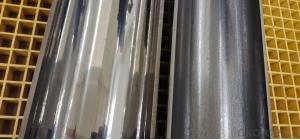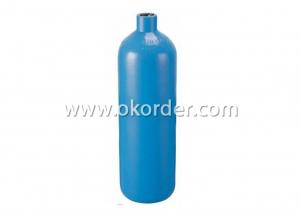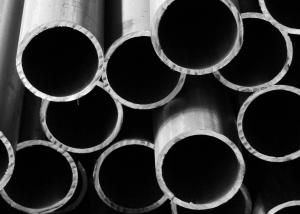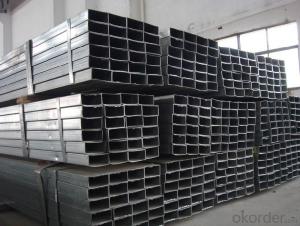High Quality Gas Cylinder
- Loading Port:
- China Main Port
- Payment Terms:
- TT or LC
- Min Order Qty:
- 15M.T. m.t.
- Supply Capability:
- 5000 Tons Per Month m.t./month
OKorder Service Pledge
OKorder Financial Service
You Might Also Like
Specifications of High Quality Gas Cylinder
The company producsts including seamless steel gas cylinder
for industry and medical gas use. We can make cylinder
apply to standard of DOT3AA, JIS8241, EN1964,
ISO9809,GB5099, KSB6210. We also produce cylinder with
certificate of CCS,BV, LLODY'S, ABS.
Standard: GB5099
Material: 34Mn2V/37Mn/30CrMo
Nominal Diameter: 219/232/267/279/325(mm)
Water Capacity: 20-80(L)
Nominal Height: 815-1780(mm)
Nominal Weight: 30.5-103(kg)
Service Pressure: 15/20(MP)
Wall Thickness: 4.7-7.0(mm)
Packaging/Delivery
Each cylinder to be protected by two polynets, standing on wooden pallet wrapped by plastic film.
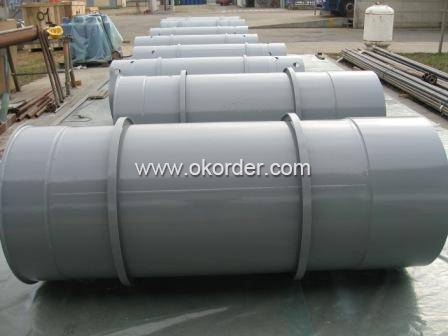
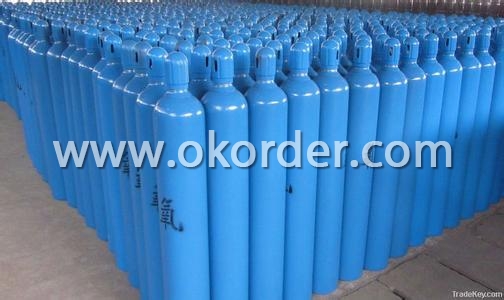
- Q: Can steel pipes be used for stadium construction?
- Certainly, stadium construction can utilize steel pipes. Steel pipes possess several benefits that render them suitable for this purpose. Primarily, steel pipes exhibit immense strength and durability, enabling them to withstand heavy loads and provide structural stability to large structures such as stadiums. Their high tensile strength ensures they can resist bending or breaking under pressure. Moreover, steel pipes possess resistance to corrosion, a crucial characteristic for outdoor structures like stadiums that are exposed to diverse weather conditions. This resistance to rust and other forms of degradation guarantees the stadium's longevity. Additionally, steel pipes are highly versatile and can be easily fabricated into various shapes and sizes, allowing for customized designs and efficient installation. Furthermore, in terms of cost-effectiveness, steel pipes prove advantageous in stadium construction. They can be produced in large quantities with ease, making them readily available and affordable. The simplicity of transportation and installation also contributes to their cost-effectiveness. Another advantage of employing steel pipes in stadium construction lies in their sustainability. Steel is a recyclable material, and utilizing steel pipes promotes environmental responsibility. The recyclability of steel reduces the demand for new materials and minimizes waste. To summarize, due to their strength, durability, resistance to corrosion, versatility, cost-effectiveness, and sustainability, steel pipes can indeed be utilized for stadium construction.
- Q: Can steel pipes be used for airport construction?
- Yes, steel pipes can be used for airport construction. Steel pipes are commonly used in various construction projects due to their durability, strength, and resistance to corrosion. They are capable of withstanding heavy loads and are often used for underground drainage systems, water supply networks, and structural support in airport construction.
- Q: What time what time for gas pipeline steel pipe PE pipe
- PE pipe is suitable for medium voltage and low voltage 0.4MPa below the pressure pipe wall thickness. According to the different pressure is not the same, so the steel tube can be used for high pressure.
- Q: How do steel pipes handle extreme temperatures?
- Steel pipes are highly durable and can handle extreme temperatures due to their inherent strength and heat resistance. They have a high melting point, allowing them to withstand both very high and very low temperatures without compromising their structural integrity. Additionally, steel pipes have excellent thermal conductivity, which enables them to efficiently transfer heat and prevent damage caused by extreme temperature fluctuations.
- Q: What is the pressure rating of steel pipes?
- The pressure rating of steel pipes varies depending on the specific grade and size of the pipe. However, steel pipes are known for their high strength and durability, allowing them to withstand high-pressure applications.
- Q: Can steel pipes be used for solar power systems?
- Yes, steel pipes can be used for solar power systems. Steel pipes are commonly used for the construction of solar panel frames, mounting systems, and the support structures for solar thermal collectors. They provide durability, strength, and are resistant to weather conditions, making them suitable for various components of solar power systems.
- Q: How big is the seamless steel tube of DN50?
- Domestic steel pipe diameter is generally divided into A series and B series, DN50 pipe diameter of 60mm and 57mm respectively, the wall thickness should be based on your design pressure, temperature, pipe material to calculate.
- Q: Are steel pipes suitable for use in automotive industries?
- Yes, steel pipes are suitable for use in automotive industries. Steel pipes are highly durable, have excellent strength-to-weight ratio, and can withstand high pressure and temperature conditions, making them ideal for various automotive applications. They are commonly used in exhaust systems, brake lines, fuel lines, and structural components of vehicles due to their reliability and ability to withstand harsh environments.
- Q: Are steel pipes suitable for pharmaceutical manufacturing facilities?
- Indeed, steel pipes prove to be a fitting option for pharmaceutical manufacturing facilities. Their outstanding resistance to corrosion and durability make them a prevalent choice in this industry. They are capable of enduring high levels of pressure and temperature, rendering them perfect for a wide range of purposes, including fluid, gas, and chemical transportation within the facility. Moreover, steel pipes possess the advantage of effortless cleaning and sanitization, guaranteeing the preservation and safety of pharmaceutical products. Additionally, they offer cost-effectiveness and boast an extended lifespan, solidifying their status as a dependable choice for pharmaceutical manufacturing facilities.
- Q: What are the different types of steel pipe supports?
- There are several types of steel pipe supports, including pipe hangers, pipe clamps, pipe saddles, pipe brackets, and pipe supports with rollers.
1. Manufacturer Overview
| Location | Zhejiang, China |
| Year Established | 2007 |
| Annual Output Value | Below US$1 Million |
| Main Markets | |
| Company Certifications | API;ISO9001 |
2. Manufacturer Certificates
| a) Certification Name | |
| Range | |
| Reference | |
| Validity Period |
3. Manufacturer Capability
| a) Trade Capacity | |
| Nearest Port | Shanghai |
| Export Percentage | 41% - 50% |
| No.of Employees in Trade Department | 300-500 People |
| Language Spoken: | English; Chinese |
| b) Factory Information | |
| Factory Size: | 360,000 Squre meters |
| No. of Production Lines | Above 10 |
| Contract Manufacturing | OEM Service Offered;Design Service Offered |
| Product Price Range | High Average |
Send your message to us
High Quality Gas Cylinder
- Loading Port:
- China Main Port
- Payment Terms:
- TT or LC
- Min Order Qty:
- 15M.T. m.t.
- Supply Capability:
- 5000 Tons Per Month m.t./month
OKorder Service Pledge
OKorder Financial Service
Similar products
Hot products
Hot Searches
Related keywords
